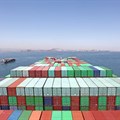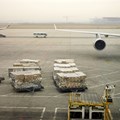
Dr Greg Cline
Covid-19 has disrupted world economies and the trade industry is no exception. With the President opening the economy gradually, many industries must figure out how to operate successfully adapt to the "new normal". With South Africa’s trade sector contributing 60% to the country’s GDP per quarter, it becomes critical to navigate these business waters with a risk-adjusted strategy.
Here, we chat to Dr Greg Cline, head of corporate accounts at Investec for your Business to get his take on how the crisis has impacted the trade industry:
How has the trade industry been affected by Covid-19? Was trade halted during this time and what delays were experienced?
Humanitarian crises have significant implications for businesses. Covid-19 has caused a slowdown in world trade, disruption in global supply chains and put pressure on economic growth. China is South Africa’s largest supplier of imports so naturally there has been a big impact and trade severely dampened.
What’s more, at the start of this pandemic there was also some confusion. Preference to essential goods needed to be given at the ports and there was a matter of the Road Freight Association understanding what was permitted in terms of the transporting of these goods from the ports through to the warehouse.
As such, we saw many businesses in this space applying for permits to be able to operate while under Level 5 of the lockdown, however clarification and changes were needed here for there was a segment of the economy that was classified as essential goods but was not significant enough to affect or reduce the impending unemployment figures which we are now starting to see.
Humanitarian crises have significant implications for businesses. Covid-19 has caused a slowdown in world trade, disruption in global supply chains and put pressure on economic growth.
As lockdown eases, most businesses have stock, but have either slowed down or paused their orders to ensure they don’t have goods coming through that will just be sitting in a warehouse. There hasn’t been an issue from the east with goods ready to ship, but because of the restrictions that have been sitting from port side in South Africa, there is anticipated backlogs and congestion. Additionally, the rand is also a big factor as it has devalued substantially, as such several businesses are waiting to see if the rand will recover before they order stock again.
Most companies had reasonable success in collecting their debtors’ book in March, however in April we have seen a different story as given companies were not able to trade, their customer have not been able to pay – causing severe cash flow problems and as a result, a halt in our economy. This has forced companies to be creative in how they protect jobs with many suspending payments to their creditors to make payroll.
Others have rationalised their staff complements and forced leave on their employees. However, in some cases, it was not possible to save all jobs where we saw and continue to see companies retrenching employees.
How will trade look like now that the economy is slowly opening – specifically from an import perspective?
The opening of the economy has had a marginal impact on trade. From an import perspective, we have seen a substantial decrease in trade in oil and petroleum-based industries such as automotive and associated parts. However, the economy hasn’t opened up enough for businesses to create enough demand to be ordering and importing aggressively.
What’s more, many companies are trying to preserve their cash flow given the uncertainly of the market, timeframes around the easing of lockdown levels and how much disposable income consumers will have. As such, there has been a definitive slow-down in the number of imports due to uncertainty and that the anticipated demand is not yet well understood.
With the virus affecting the global markets, what is the relationship with South Africa’s major trading partners like now, for example, China and the US?
Countries are taking an introspective stance - focusing on saving jobs, implementing relief measures to preserve people’s livelihoods as well as ramping up on health and medical infrastructure. As a result, little focus has been placed on international trade relations outside of acquiring essential goods and medical supplies.
For South Africa specifically, I think it is difficult to look outwards when you have not solved the issues that are plaguing so many in a poverty-stricken nation. Focus has rightly been placed on Government grants, payment holidays, trying to find a stimulus to create jobs.
This is the main priority and while trade relations are an important piece of that puzzle, many countries are similarly battling their own internal challenges, and their economies have not fully reopened yet. Once we are in a space where we have passed the peak of this virus, more focus will turn to both inter-Africa and international trade.
With South Africa’s trade sector contributing 60% to the country’s GDP per quarter, it becomes critical to navigate these business waters with a risk-adjusted strategy. How have businesses been navigating the crisis and/or what steps can they put in place to implement strategies effectively?
There are a number of strategies being put into place. Businesses have had to relook at number of areas with the biggest focus being on containing costs while diversifying into new product lines that can provide returns and at the same time produce some type of cash-flow for the business.
In the trade industry... once we understand where demand is, we are going to see businesses adjust their operating models, redefine their product offering and become more rigorous in how they negotiate payment terms.
As such, we have seen many businesses using this time to negotiate with creditors for additional payment terms, holidays or discounts and turning to digital channels to reach new customers and get product to market. We have also seen a new demand for Covid type loans – essentially, financial relief to cover operational expenses for the next few months. On the other hand, some businesses have opted not to take on such debt and have looked towards bespoke trade finance solutions to address their working capital pitfalls and frustrations.
What does the new frontier of trade and importing look like going into the second half of the year?
To be honest, no one really knows. Most of the cash flow projections that we are seeing are sitting at three months as there is a lot of uncertainty at the moment. Cost inputs and considerations are just not understood at this time and market volatility is rife.
I certainly believe that consumer demand is going to be a big determining factor here, along with where the rand/dollar exchange rate and oil price settle. This will provide more insight into what imports and trade will look like in the second half of the year.
Has this global crisis changed your view of the future of the trade and import sector in any way? Any opportunities you think will emerge as a result?
Businesses tend to evolve over time to address what they believe is the new norm. So, understanding what is going to be those product categories and services that are important to consumers is where the opportunity lies, and no doubt businesses will move to capitalise on them – evolving as they must.
In the trade industry for example, once we understand where demand is, we are going to see businesses adjust their operating models, redefine their product offering and become more rigorous in how they negotiate payment terms.
Any trends you’ve seen emerge as a result of the crisis?
There have been a number of trends emerge, however from my perspective, I think we are seeing and are likely to see the following:
• Increased use of digital channels for connecting, communicating and deploying services. We are also likely to see people and businesses become more comfortable with online forms or orders, where previously this wasn’t the case.
• Substantial changes in business models – ones that take physical distancing and convenience into account.
• Change in mindset when it comes to the preservation of cash and regard for disposable income, along with prioritising spend.
Your key message to those in trade and import sector during this time?
During this time many are adopting a wait and see approach, while some are unable to trade at all. As such, take the time to re-examine your relationship with your suppliers and customers.
Make sure that you have negotiated equitable payment terms with your suppliers and at the same time, create an overall customer experience that will bring customers to your door. People are looking to engage, if it's not in a personal context, it is going to be in a virtual platform of some sort – so make sure your business is ready for the new normal.














































